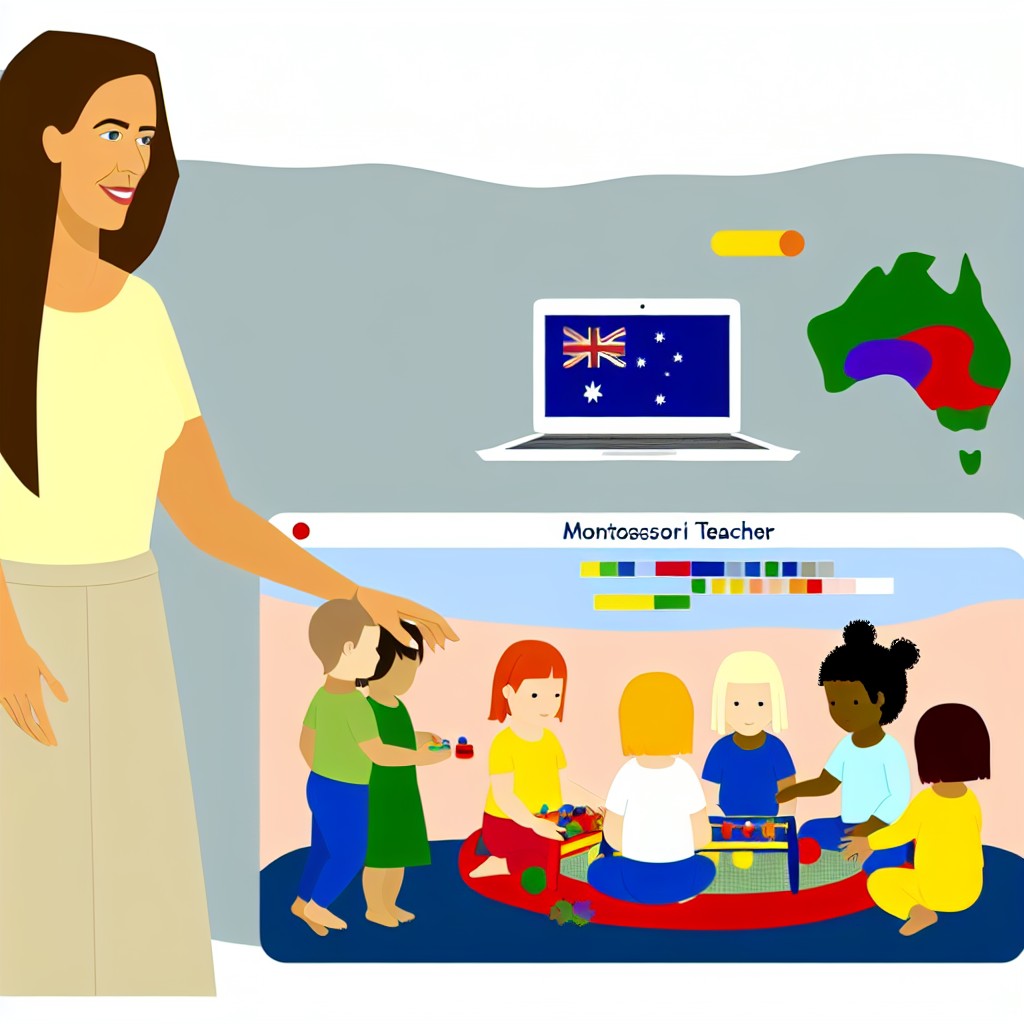Overview of Montessori Education Philosophy and Its Impact on Early Childhood Learning
Foundations of Montessori Education
Montessori education centers on child-led learning and natural development.
Maria Montessori developed this approach in the early 20th century.
The method emphasizes respect for each child’s unique pace and interests.
Classrooms encourage independence and hands-on exploration.
Teachers serve as guides rather than traditional instructors.
Core Principles Guiding Montessori Learning
The approach fosters intrinsic motivation by offering choice and freedom.
Children engage with specially designed materials that promote sensory experiences.
Mixed-age classrooms allow peer learning and collaboration.
Education focuses on the whole child, including emotional and social growth.
Prepared environments stimulate curiosity and self-discipline.
Impact on Early Childhood Development
Montessori methods improve cognitive skills through active discovery.
They build fine motor abilities and practical life skills simultaneously.
Moreover, students develop strong concentration and problem-solving capabilities.
The approach nurtures creativity by allowing children to follow their interests.
Social development thrives as children learn respect and cooperation effectively.
Your Personalized Career Strategy
Unlock your potential with tailored career consulting. Get clear, actionable steps designed for your success. Start now!
Get StartedTransforming the Role of Teachers
Teachers observe carefully to understand each child’s needs and strengths.
They introduce materials at the right moment to enhance learning.
Furthermore, they encourage autonomy while providing gentle guidance.
As facilitators, teachers create a supportive, responsive learning atmosphere.
This dynamic role contrasts with conventional directive teaching methods.
Key Responsibilities and Daily Roles of Montessori Teachers in the Classroom
Creating a Prepared Environment
Montessori teachers design classrooms that foster independence and exploration.
They carefully arrange materials to encourage hands-on learning experiences.
Moreover, they ensure all tools are accessible and child-sized for ease of use.
Teachers regularly observe the space to maintain order and safety.
Facilitating Individualized Learning
Teachers observe each child’s interests and developmental pace attentively.
They introduce new activities based on the child’s readiness and curiosity.
Furthermore, Montessori educators guide children without overtly directing their choices.
This approach empowers children to build confidence and autonomy.
Guiding Social and Emotional Development
Montessori teachers model respectful communication and conflict resolution.
Stand Out with a Resume That Gets Results
Your career is worth more than a generic template. Let us craft a resume and cover letter that showcase your unique strengths and help you secure that dream job.
Get HiredThey foster a sense of community by encouraging collaboration among students.
Also, teachers help children recognize and express their emotions appropriately.
They support children in developing empathy and understanding peers’ perspectives.
Observing and Assessing Progress
Teachers continuously document children’s work and behavior patterns.
This information helps tailor future lessons to each child’s needs.
Moreover, they meet with parents to discuss developmental milestones and goals.
Such communication strengthens the home-school relationship and supports learning.
Maintaining Professional Development and Collaboration
Montessori educators participate in ongoing training to refine their skills.
They collaborate with colleagues to share strategies and solve classroom challenges.
Additionally, teachers stay informed about early childhood education research.
This commitment ensures they provide the highest quality Montessori experience.
Creating a Prepared Environment Tailored to Children’s Developmental Needs
Understanding the Prepared Environment
The prepared environment plays a central role in Montessori education.
It provides children with opportunities to explore and learn independently.
Furthermore, this environment adapts to children’s unique developmental stages.
Transform Your LinkedIn for Maximum Impact
Elevate your professional brand with a LinkedIn profile that attracts recruiters, showcases your expertise, and maximizes opportunities. Stand out in your industry with a profile built for success.
Boost ProfileMontessori teachers like Amelia Rivera carefully design these spaces to support growth.
Key Elements of a Prepared Environment
The environment uses child-sized furniture to promote comfort and accessibility.
Natural light and calming colors create a peaceful learning atmosphere.
Materials are arranged neatly on open shelves within children’s reach.
Consequently, children develop a sense of order and responsibility.
Moreover, materials are self-correcting to encourage independent problem-solving.
The classroom supports movement, allowing physical development alongside cognitive skills.
Supporting Developmental Needs Through Environment
The environment reflects the sensitive periods of child development.
It offers activities for practical life skills to enhance coordination and concentration.
For example, children practice pouring, sorting, and buttoning tasks daily.
Teachers adjust the environment continuously to meet evolving individual needs.
This approach fosters children’s confidence and intrinsic motivation to learn.
Role of Montessori Teachers in Environment Preparation
Montessori educators observe children closely to identify their interests.
Based on observations, teachers like Samuel Chen thoughtfully arrange materials.
They maintain the environment’s order to facilitate children’s self-directed learning.
Additionally, teachers guide children subtly without interrupting their discovery process.
As a result, the prepared environment becomes a living, dynamic space supporting growth.
Uncover the Details: The Role of Language Teachers in Connecting Australia to the World
How Montessori Teachers Facilitate Independence and Self-Directed Learning in Young Children
Creating a Prepared Environment
Montessori teachers design classrooms to encourage exploration and autonomy.
They arrange materials at child-friendly heights to promote easy access.
Furthermore, they ensure the environment is orderly and inviting for young learners.
The setup supports children in choosing activities that match their interests.
Thus, children develop decision-making skills while engaging with materials independently.
Observing and Guiding Without Interfering
Montessori educators closely observe children to understand their developmental needs.
They step in only when necessary to support learning or manage safety.
Consequently, children feel free to explore and make mistakes safely.
This respectful approach fosters confidence and intrinsic motivation in learners.
Encouraging Practical Life Skills
Teachers introduce practical life activities that build independence.
For example, children learn to pour water, tie shoelaces, and clean up.
These tasks promote concentration and fine motor skills simultaneously.
Moreover, completing real-world tasks enhances children’s sense of responsibility.
Supporting Self-Directed Learning through Individualized Work
Montessori teachers provide personalized lessons based on each child’s progress.
They allow children to choose work that interests them within a structured framework.
This method cultivates deep focus and a love of learning over time.
It also respects children’s unique learning paces and styles.
Promoting Intrinsic Motivation and Problem Solving
Teachers motivate children by encouraging curiosity rather than external rewards.
They present challenges that invite children to think critically and find solutions.
As a result, children develop perseverance and self-confidence in their abilities.
This empowerment leads to lifelong habits of independent inquiry and creativity.
See Related Content: The Growing Demand for Online Educators in Australia
The Role of Observation and Individualized Guidance in Montessori Teaching Methods
Importance of Careful Observation
Montessori teachers observe children attentively throughout the day.
This observation helps identify each child’s interests and developmental stage.
Moreover, it allows teachers like Emma Calderon to notice subtle cues children express.
Consequently, teachers gain insights into children’s strengths and challenges.
These insights form the foundation for tailored educational support.
Implementing Individualized Guidance
Teachers provide personalized guidance based on their observations.
For instance, Lucas Medina adapts activities to match a child’s pace and preferences.
This approach encourages children’s natural curiosity without pressure or haste.
Additionally, it fosters independence by allowing children to make meaningful choices.
Thus, guidance empowers children to develop confidence and self-discipline.
Creating a Supportive Learning Environment
Observation and guidance work together to create nurturing classrooms.
Teachers arrange Montessori materials thoughtfully to invite exploration and discovery.
Furthermore, educators like Olivia Chen maintain calm environments to minimize distractions.
They also encourage peer collaboration to enhance social and cognitive skills.
Overall, these efforts promote holistic growth and lifelong love of learning.
Key Benefits of Observation and Individualized Guidance
- Supports each child’s unique learning trajectory
- Enhances engagement by addressing individual interests
- Builds trust between teacher and child
- Encourages development of critical thinking and problem-solving
- Strengthens emotional and social competence
Explore Further: How Curriculum Developers Shape the Future of Australian Education
Techniques Montessori Teachers Use to Foster Emotional and Social Development
Creating a Supportive and Respectful Environment
Montessori teachers establish classrooms that promote respect and kindness.
They encourage children to appreciate differences and embrace diversity.
Furthermore, they model empathetic behavior for students to observe and imitate.
Teachers also ensure every child feels safe and valued within the learning space.
Gradually, this environment builds emotional security among young learners.
Encouraging Independence and Self-Regulation
Montessori educators empower children to make choices and solve problems independently.
This autonomy helps students develop confidence in their abilities.
Moreover, teachers guide children gently to manage their emotions effectively.
They teach techniques such as deep breathing or pausing before reacting.
Consequently, children learn self-control and patience through daily practice.
Promoting Collaborative Learning and Social Interaction
Montessori classrooms emphasize group work and cooperative activities.
Teachers facilitate respectful communication among peers during tasks.
They organize projects that require sharing and teamwork skills.
Children also engage in peer mentoring, which strengthens social bonds.
Through this collaboration, students enhance empathy and mutual respect.
Using Practical Life Activities to Build Emotional Skills
Practical life exercises improve concentration and fine motor skills in children.
Teachers integrate tasks such as pouring or cleaning, fostering responsibility.
These activities teach patience, focus, and the satisfaction of accomplishment.
Additionally, completing tasks boosts a child’s self-esteem and independence.
Thus, emotional maturity grows alongside these hands-on experiences.
Observing and Responding to Individual Emotional Needs
Montessori teachers carefully observe each child’s behavior and feelings.
They tailor support strategies according to individual emotional needs.
Teachers communicate with parents to maintain consistent emotional guidance.
They also provide calming corners or tools for children to self-soothe.
This personalized approach nurtures emotional well-being effectively.
Learn More: EdTech Boom in Australia: Careers at the Intersection of Education and Technology

Differences between Montessori teachers and traditional early childhood educators
Philosophy and Approach to Teaching
Montessori teachers focus on child-led learning and independence.
Traditional educators often follow a structured curriculum.
Montessori guides emphasize respect for each child's individual pace.
Traditional teachers typically set uniform expectations for all students.
Montessori classrooms adapt to children's natural interests and abilities.
Traditional settings rely more on teacher-directed instruction and standardized lessons.
Role of the Teacher in the Classroom
Montessori teachers act as facilitators rather than direct instructors.
They carefully prepare the environment to encourage exploration.
Traditional educators usually assume a more authoritative role in lessons.
Montessori teachers observe closely to guide without interrupting.
Traditional teachers often lead activities and direct group participation.
Montessori guides promote self-discipline and autonomy in children.
Classroom Environment and Materials
The Montessori environment uses tactile and self-correcting materials.
These materials support hands-on learning and discovery.
Traditional classrooms depend more on textbooks, worksheets, and teacher demonstrations.
Montessori teachers maintain a calm, orderly, and aesthetically pleasing space.
Traditional classrooms may focus on efficiency and managing the entire class.
Montessori educators encourage children to choose activities freely within limits.
Assessment and Evaluation Methods
Montessori educators utilize observation over formal testing.
They assess children's progress through daily interactions and work samples.
Traditional teachers frequently use standardized tests and graded assignments.
This difference influences how each teacher measures student success.
Montessori assessment highlights growth and personal development.
Traditional evaluation often emphasizes academic achievement and comparison.
Training and Certification
Montessori teachers undergo specialized training in Montessori philosophy and methods.
This training focuses on developmental psychology and prepared environment techniques.
Traditional educators earn general early childhood education degrees and certifications.
Their preparation often includes broader pedagogical theories and classroom management skills.
Montessori guides have deep knowledge about individualized learning strategies.
Traditional teachers receive preparation for diverse classroom dynamics and standardized curricula.
Required Qualifications for Montessori Teachers
Educational Background
Montessori teachers typically hold at least a bachelor's degree in education or a related field.
Many pursue degrees specializing in early childhood education to deepen their expertise.
Additionally, some teachers have backgrounds in child development or psychology.
This foundation enables them to understand children's individual learning needs effectively.
Montessori Certification
Montessori teacher certification is essential for teaching in Montessori schools.
Various accredited organizations offer this certification, such as the American Montessori Society.
Certification programs include both theoretical and practical training components.
These programs ensure teachers understand Montessori philosophy and materials thoroughly.
Training Process for Montessori Teachers
Theoretical Training
The theoretical training covers Montessori philosophy and educational psychology.
Teachers learn about child-centered learning principles and developmental stages.
This knowledge helps teachers create effective, individualized learning environments.
Practical Training
Practical training involves hands-on experience with Montessori materials and methods.
Teachers complete supervised classroom observations and internships.
They practice guiding children to foster independence and exploration.
This approach builds confidence and competence in classroom management.
Ongoing Professional Development
Continuing Education Opportunities
Montessori educators engage in ongoing workshops and seminars to update skills.
They explore new research findings related to child development and Montessori practices.
This continuous learning enhances teaching effectiveness and pedagogical approaches.
Peer Collaboration and Mentorship
Teachers often participate in professional learning communities with fellow Montessori educators.
They share experiences and strategies to address classroom challenges effectively.
Mentorship programs support novice teachers in their professional growth journey.
Reflective Practice
Regular self-assessment helps teachers refine their instructional methods.
They adapt classroom environments based on observations and student feedback.
This reflective practice aligns with Montessori's emphasis on responsive teaching.
Challenges Montessori Teachers Face
Balancing Individualized Learning
Montessori teachers must meet each child’s unique developmental needs.
This balance demands constant observation and adjustment of teaching methods.
Therefore, teachers often experience time constraints during lesson planning.
Additionally, managing different learning paces can lead to classroom complexity.
As a result, teachers must prioritize effectively to serve all students.
Classroom Management and Maintaining Environment
Maintaining a calm and orderly environment proves challenging in active classrooms.
Teachers must encourage independence while setting clear boundaries.
They face the task of handling conflicts without disrupting learning.
Furthermore, managing classroom materials requires careful organization and maintenance.
Hence, daily upkeep demands attention alongside instructional duties.
Continuous Professional Development
Montessori education evolves, requiring teachers to stay updated with new techniques.
Teachers often seek advanced training to deepen their pedagogical skills.
Finding time for professional growth amid daily responsibilities remains difficult.
Moreover, limited access to specialized resources can restrict ongoing learning.
Thus, proactive planning helps teachers pursue meaningful development opportunities.
Strategies to Overcome Challenges
Implementing Collaborative Planning
Montessori educators benefit from collaborating to share lesson ideas and resources.
This approach reduces individual workload and fosters creative solutions.
Regular team meetings help address classroom challenges collectively.
In addition, collaboration strengthens professional support networks.
Therefore, schools should encourage peer collaboration among teachers.
Using Clear Routines and Expectations
Establishing predictable schedules helps children feel secure and focused.
Teachers can set clear behavioral guidelines to minimize conflicts.
Visual cues and gentle reminders reinforce expectations effectively.
Consequently, routines support classroom harmony and smooth transitions.
This strategy saves time and reduces the need for repeated discipline.
Prioritizing Time for Professional Growth
Teachers should allocate specific periods for professional development activities.
Online workshops and local Montessori conferences offer convenient learning options.
Schools can support growth by providing funding or releasing staff time.
Maintaining a learning journal encourages reflection and tracks progress.
Thus, continuous improvement becomes an integrated part of teaching practice.
Optimizing Classroom Environment
Organizing materials in accessible and labeled containers helps children stay independent.
Regular tidying routines involve both teachers and students.
Designing learning spaces that inspire curiosity enhances engagement.
Teachers can rotate materials to maintain novelty and interest.
Accordingly, a well-structured environment promotes autonomy and order.
The Influence of Montessori Teaching on Long-Term Educational and Personal Outcomes for Children
Fostering Lifelong Learning Habits
Montessori teachers cultivate curiosity and a love for learning in young children.
Students develop self-motivation that extends beyond the classroom.
This intrinsic motivation supports continuous educational growth throughout life.
Montessori methods encourage children to take ownership of their learning paths.
Students become independent thinkers who enjoy exploring new ideas.
Enhancing Cognitive and Social Skills
Children in Montessori programs build strong problem-solving skills through hands-on activities.
The multi-age classroom environment promotes collaboration among peers.
Teachers facilitate social development by guiding respectful communication and empathy.
Adults like Ms. Elena Rodriguez often observe increased confidence in their students.
These enhanced cognitive and social skills prepare children for future academic challenges.
Supporting Emotional and Personal Growth
Montessori teachers emphasize emotional intelligence alongside intellectual development.
Children learn to manage emotions and develop resilience early on.
Through consistent positive reinforcement, teachers like Mr. David Chen nurture self-esteem.
This emotional foundation helps children adapt successfully to diverse environments later.
Preparing for Academic and Career Success
Research shows Montessori students often outperform peers in standardized academic assessments.
Graduates demonstrate strong critical thinking and leadership capabilities in adulthood.
Alumni, such as Sophia Martin, credit their early Montessori education for professional achievement.
Employers value the creativity and initiative fostered by Montessori learning experiences.
Societal Benefits of Montessori Education
Montessori education promotes responsible citizenship by developing ethical decision-making skills.
Graduates often engage in community service and social innovation projects.
Early Montessori teaching positively impacts both individual lives and society at large.
Schools like Laurelwood Montessori play key roles in producing thoughtful future leaders.




